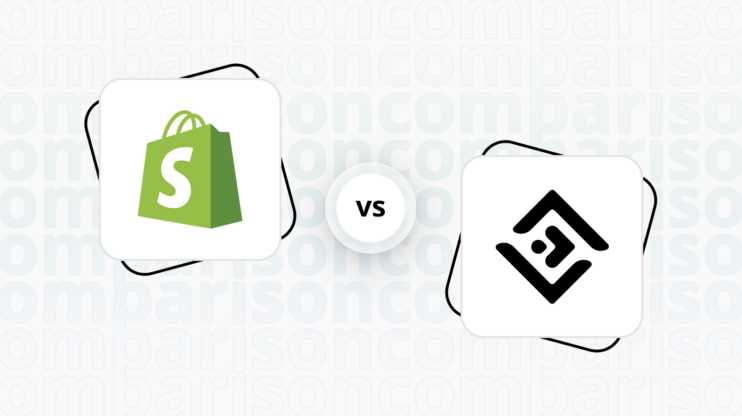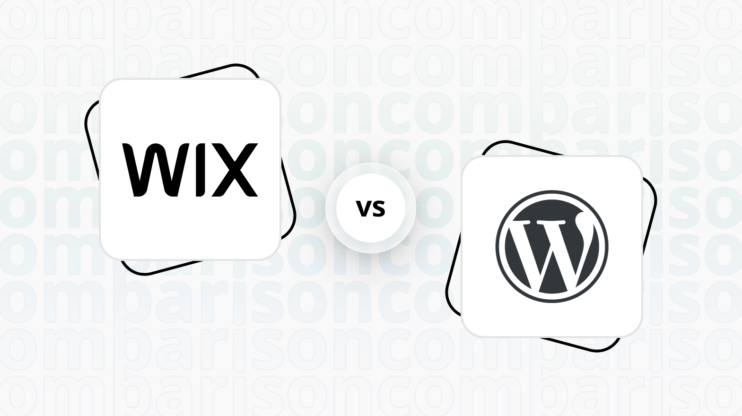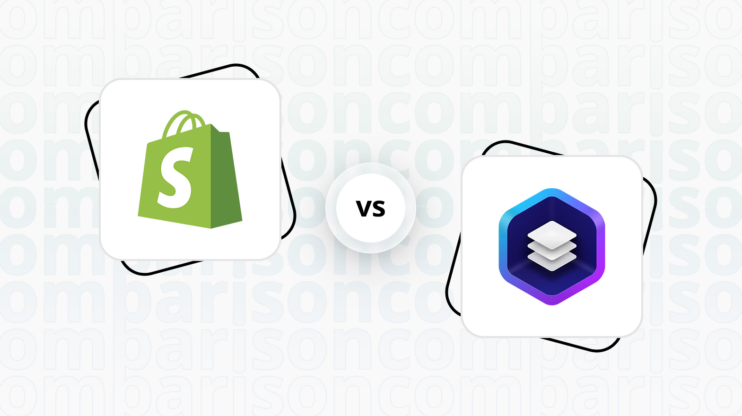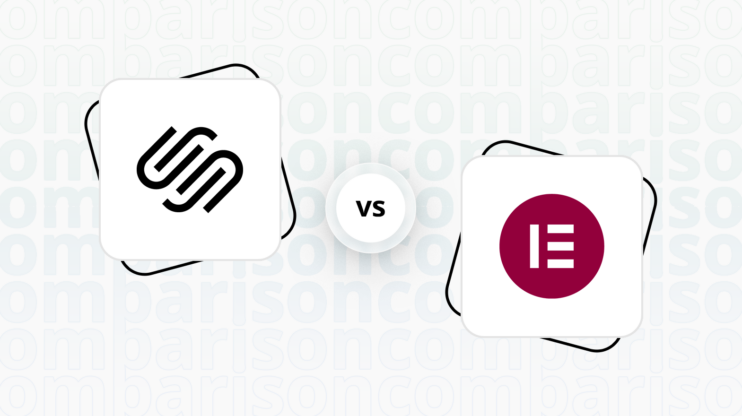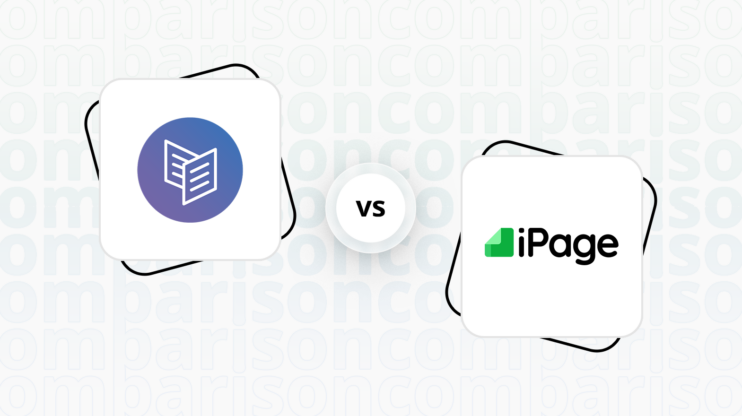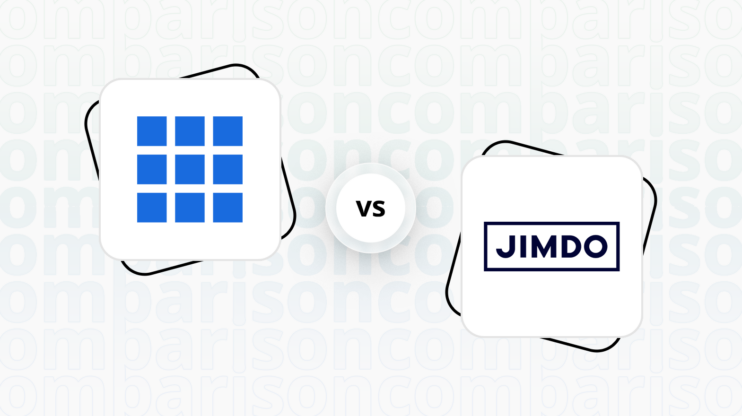Final verdict
Shopify and SITE123 cater to different needs and audiences, with Shopify emerging as the more robust platform for ecommerce.
-
Shopify (Overall Grade: 8.1/10)
excels in providing a comprehensive ecommerce solution with advanced features for online stores, including a wide range of templates, extensive ecommerce functionalities, superior website editors, and robust hosting quality. Its focus on security, advanced marketing tools, and extensive plugins and integrations make it ideal for businesses looking to scale. Shopify’s AI capabilities and user management options further enhance its appeal to a wide range of ecommerce businesses. -
SITE123 (Overall Grade: 6.5/10)
offers a user-friendly platform that is great for individuals and small businesses looking to create professional websites without extensive coding knowledge. While it provides basic ecommerce features, its capabilities are not as extensive as Shopify’s. SITE123 scores well in ease of use and offers decent customer support, but it falls short in areas critical for growing ecommerce businesses, such as advanced marketing tools and plugins.

|

|
|
|---|---|---|
|
Design functionalities & templates |
8.2 |
7.2 |
|
Ease of use |
7.5 |
8.1 |
|
Ecommerce |
9.2 |
7.0 |
|
Website Editors |
7.9 |
7.0 |
|
Product testing options |
8.1 |
6.4 |
|
Price |
8.2 |
6.2 |
|
Hosting quality |
9.0 |
7.0 |
|
Website speed optimization |
7.8 |
5.8 |
|
Plugins and integrations |
8.7 |
7.1 |
|
Marketing features |
8.8 |
6.0 |
|
Customer support |
8.6 |
7.3 |
|
Security |
9.0 |
7.5 |
|
AI capabilities |
7.9 |
2.8 |
|
User Management |
6.5 |
6.3 |
| Overall |
8.1 |
6.5 |
Best for ecommerce
 9.2
9.2
 7.0
7.0
Verdict
: For those aiming to build a robust online store with scalability and advanced features, Shopify is the superior choice. SITE123 serves well for simpler, smaller-scale ecommerce projects.
-
Shopify
: With a score of 9.2, Shopify shines as a comprehensive ecommerce solution. It offers a wide array of features including advanced inventory management, multi-channel selling, and detailed analytics. Its platform is designed to support the growth of online stores, making it ideal for businesses looking to expand. -
SITE123
: Scoring 7.0, SITE123 is recognized for its ease of use and straightforward ecommerce capabilities. It provides essential tools for product management, payment gateway integration, and basic marketing features. While it may not offer the depth of ecommerce functionalities found in Shopify, it’s a solid option for those new to online selling or with simpler needs.
Best for informational & business websites
 6.8
6.8
 7.4
7.4
Verdict
: SITE123 edges out Shopify for informational and business websites, offering a more user-friendly platform with a higher score in this category.
-
Shopify
: Known for its ecommerce strengths, Shopify can still support informational sites but may not be as intuitive or straightforward for this purpose. Its focus on online stores means that while it’s capable, it might not be the first choice for purely informational or business websites. -
SITE123
: With a higher score for informational and business websites, SITE123 is designed for ease of use and simplicity, making it ideal for users who need to create professional-looking websites without extensive technical knowledge. Its range of customizable templates and user-friendly interface positions it as a better choice for those not focused on ecommerce.
Detailed comparison
Design functionalities & templates
Design FunctionalitiesRepresents how well each platform allows for creative design and customization of websites.Score Components:
- Template Variety (30%): Range and quality of design templates.
- Customization (30%): Flexibility and options for design alterations.
- User Interface (20%): Ease and intuitiveness of the design process.
- Responsiveness (10%): Adaptability to different devices and screen sizes.
- Innovation (10%): Unique design features and tools.
 8.2
8.2
 7.2
7.2
Winner: Shopify.
If you’re looking for a platform that offers more professional and ecommerce-focused design functionalities and templates, Shopify is the preferred choice.
Shopify’s templates are sleek and professional, ideal for ecommerce sites. They offer a sophisticated look with a focus on online stores. While the free template selection is not large, Shopify’s premium theme store provides a variety of industry-specific options, offering advanced features for a strong brand presence.
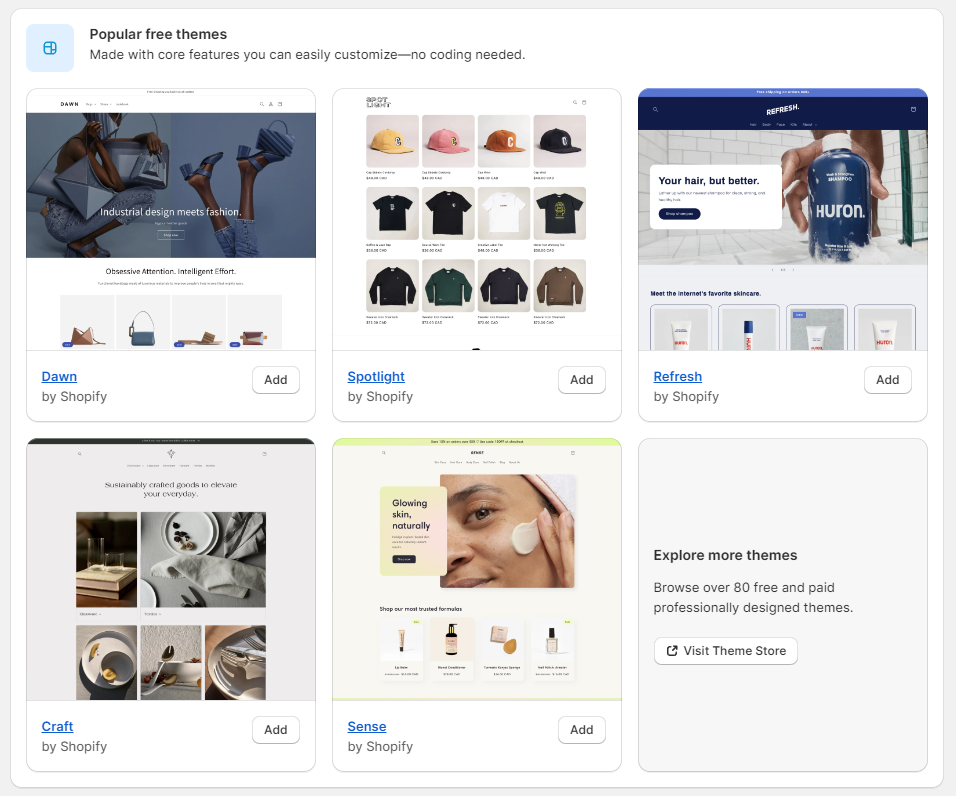
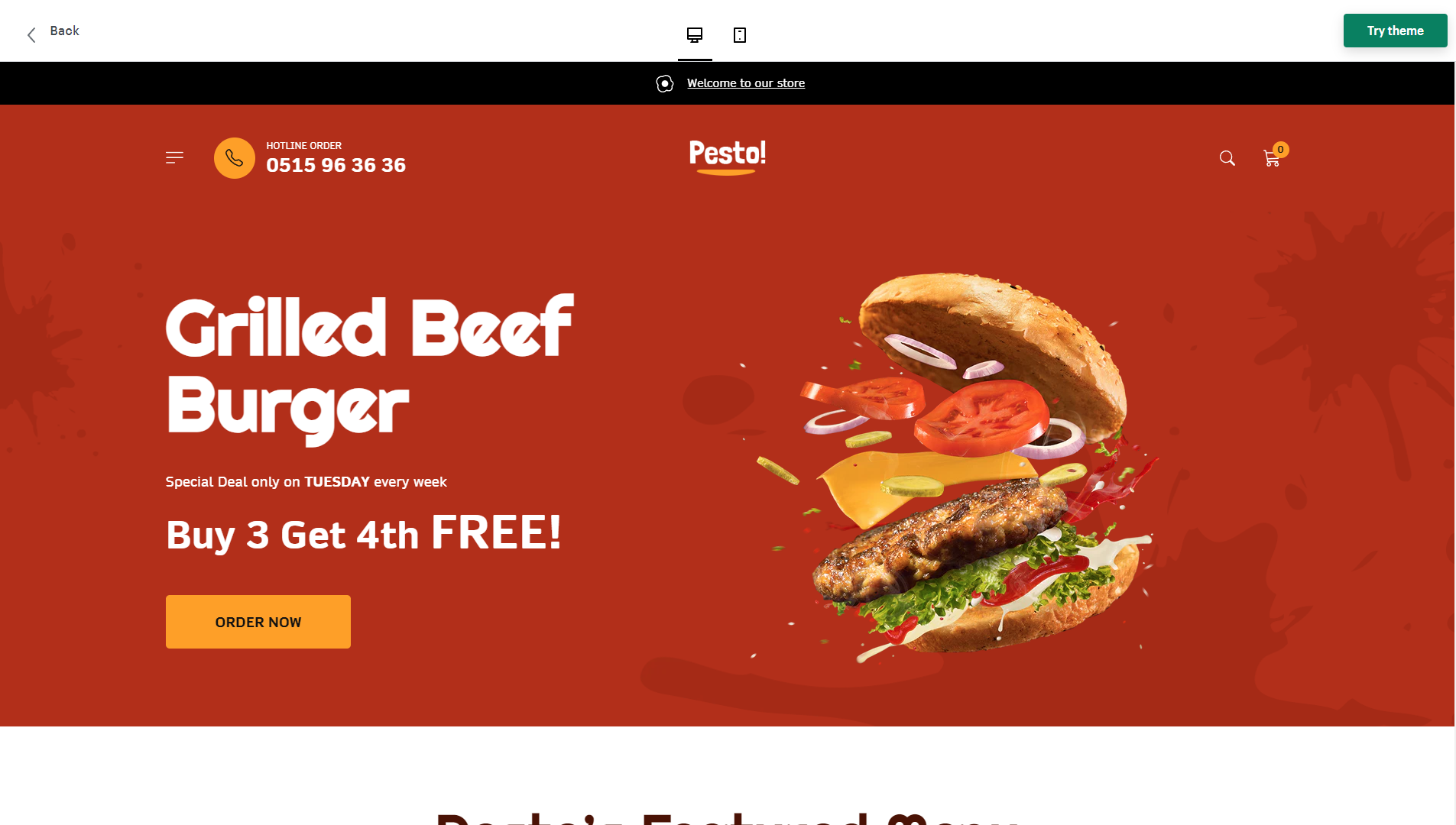
Compared to Shopify, SITE123 offers a wide variety of templates and designs for their website builder, with over 180 options to choose from. Their templates are organized by industry and category, making it easy to find the perfect design for your website. SITE123 also allows for customization of templates, giving users the ability to make their website unique and tailored to their brand. Additionally, SITE123 offers mobile-responsive designs, ensuring that your website looks great on any device.
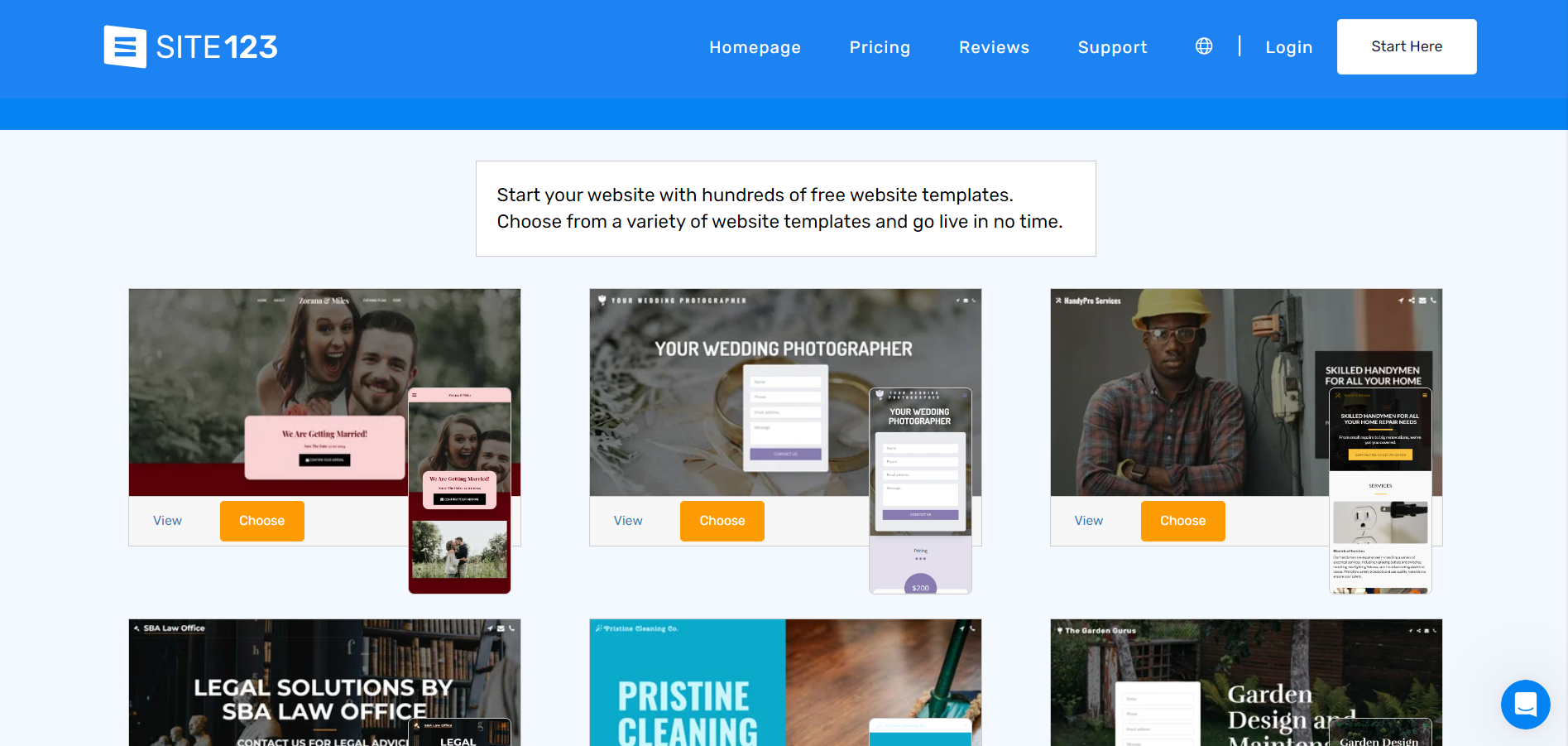

Get a head start on website creation with AI
Create a custom website tailored to your business needs 10X faster with 10Web AI Website Builder!
Ease of use
Ease of useReflects the platform’s overall user-friendliness.Score
Components:
- Learning curve (40%): Quickness and ease of getting started.
- Interface design (30%): Simplicity and intuitiveness of layout.
- User guidance (20%): Quality of tutorials and support.
- Flexibility (10%): Adaptability to various user skills.
 7.5
7.5
 8.1
8.1
🏆 Winner: SITE123
. With a score of 8.1, SITE123 is slightly easier to use than Shopify, which scored 7.5. SITE123’s user-friendly interface and intuitive design make it a great choice for individuals and small businesses who want to create a professional-looking website without needing advanced technical skills. However, Shopify’s extensive learning resources and large community of users can provide valuable support and information for users who want to learn more about using the platform.
Learning Resources
🏆 Winner: Shopify
. Both platforms offer learning resources, but Shopify’s extensive library of articles, tutorials, webinars, and video courses provide a more comprehensive learning experience for users.
For ecommerce
EcommerceMeasures the platform’s effectiveness in supporting online business activities.Score Components:
- Ecommerce themes and templates (20%): Variety and design of templates.
- Product management (25%): Ease of managing and organizing products.
- Payment options (25%): Variety and convenience of payment methods.
- Ecommerce features (20%): Features for managing an ecommerce store.
- Integration (10%): Compatibility with external e-commerce tools and services.
 9.2
9.2
 7.0
7.0
Shopify, with a score of 9.2, is a leading ecommerce platform that provides a comprehensive set of features for online businesses. It offers tools for creating and customizing online stores, managing products, processing payments, and handling order fulfillment. On the other hand, SITE123, scoring 7.0, offers user-friendly ecommerce features which allow users to create online stores where they can sell products and services directly from their websites. The platform provides various ecommerce tools including product management, payment gateway integration, shipping and tax management, and options for creating coupons and discounts.

|

|
|
|---|---|---|
|
Ecommerce themes and templates |
8.2 |
6.5 |
|
Product page customization |
8.5 |
6.8 |
|
Payment processing and commissions |
8.8 |
6.0 |
|
POS capabilities |
8.1 |
5.0 |
|
Payment gateways |
9.5 |
7.0 |
|
Product numbers |
9.0 |
6.0 |
|
Additional ecommerce features |
9.1 |
6.5 |
Shopify ecommerce features:
- Comprehensive store builder
- Shopify Payments and other gateways
- Advanced inventory management
- Multi-channel selling
- Abandoned cart recovery
- Detailed analytics and reporting
SITE123 ecommerce features:
- Product Management
- Payment Gateways
- Shipping and Tax Configuration
- SEO tools
- Analytics
- Social Media Integration
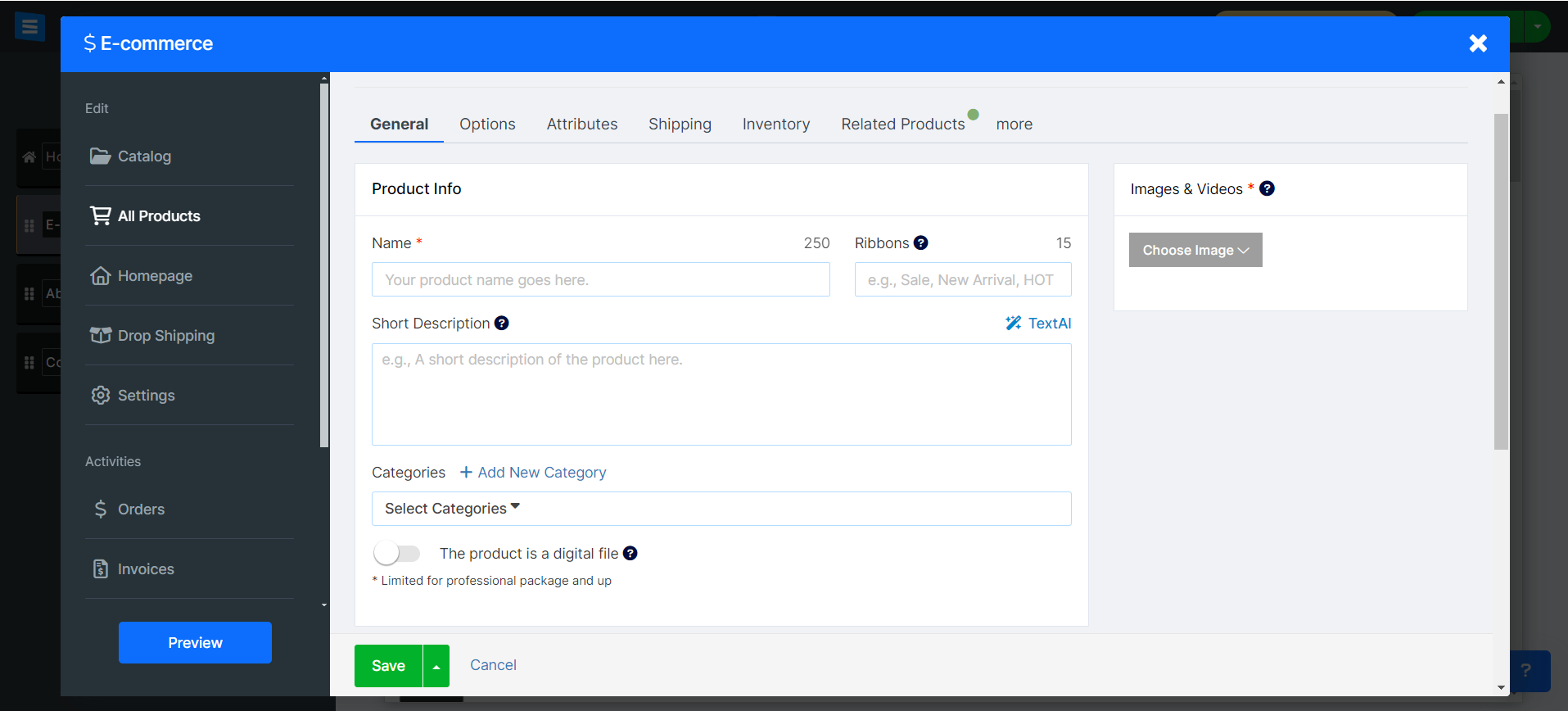
Ecommerce themes & templates
Shopify offers about 150 modern responsive themes for creating a virtual storefront, ensuring a good look on both desktop and mobile devices. While some themes are free, others cost between $170 to $380. SITE123, on the other hand, offers a variety of ecommerce templates suitable for various types of businesses. These templates are designed to be professional and user-friendly, ensuring that your products stand out and that customers have a seamless shopping experience.
Product page customization
Shopify has a limit of three options per product, totaling 100 unique variations. This limit may not pose a significant constraint, and it is suggested that for products with numerous options, creating separate listings on Shopify can be a more manageable approach. SITE123 offers extensive customization options for ecommerce product pages, suitable for both physical and digital goods. Adding products is streamlined through the Website Editor, under the ecommerce (Store) page within the Pages section. Products can be organized into categories for better navigation. Detailed product pages can include essential information like product name, description, images, videos, pricing options, SKUs, brands, and additional descriptions, with customizable SEO settings to improve online visibility.
Payment processing
Shopify offers payments with typical charges of 2.9% + 30¢ per online transaction on basic plans, and lower fees for higher-tier plans. However, it adds extra fees for using other payment gateways. Shopify Payments is Shopify’s own payment processing gateway. It allows merchants to accept credit card payments directly on their store without having to integrate third-party payment providers. This simplifies the payment process, reduces transaction fees, and streamlines the handling of finances. SITE123 supports various payment gateways like Stripe, PayPal, and Amazon Pay, enabling seamless online transactions without charging sales commissions. Users can expect payment processing fees around 3%, which are standard across ecommerce platforms. The platform offers a 14-day money-back policy on certain package purchases, with detailed terms around invoicing, taxes, and refunds.
Website Editors
Website EditorsEvaluates the platforms’ website building and editing capabilities.Score Components:
- Customization tools (40%): Range and power of editing features.
- Editor usability (30%): User experience within the editor.
- Design flexibility (20%): Freedom in layout and design changes.
- Update and maintenance ease (10%): Simplicity of updating and maintaining the site.
 7.9
7.9
 7.0
7.0
🏆
Winner: Shopify
. Shopify, with a score of 7.9, excels in providing a streamlined, ecommerce-focused editing experience. It’s particularly beneficial for users who prioritize efficient management of online stores. The editor is straightforward, making it easy to add products, manage inventory, and set up payment methods. Shopify’s editor is optimized for sales and business growth, with built-in tools specifically designed for ecommerce businesses.
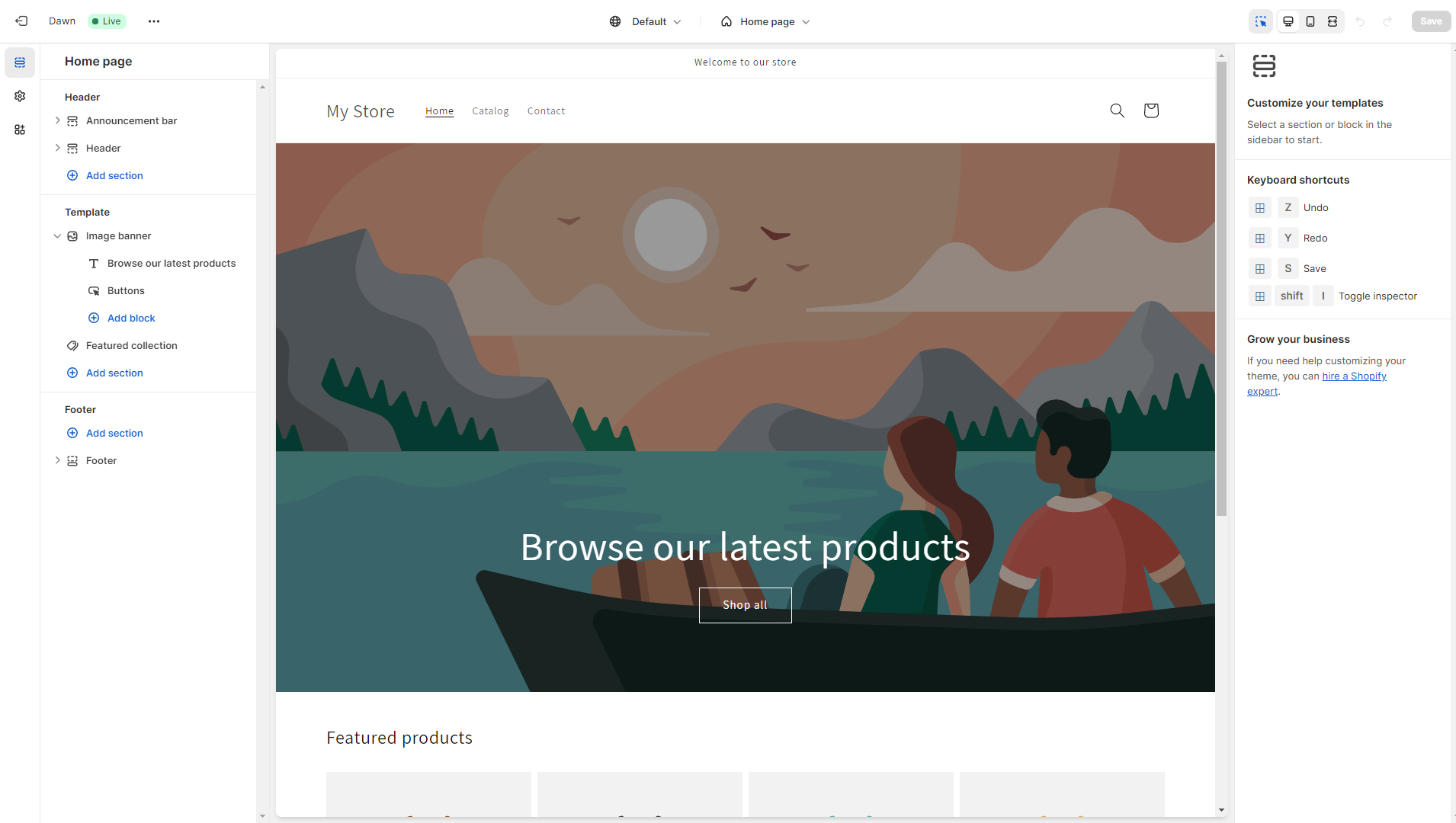
SITE123’s editor, scoring 7.0, is a straightforward and user-friendly website builder designed for individuals without coding or design expertise. It offers a selection of ready-made templates, mobile responsiveness, free hosting, and SEO tools, alongside ecommerce capabilities for users willing to subscribe to higher plans. However, customization is somewhat limited due to the inability to access template source codes or integrate external templates, and advanced features may incur additional costs.
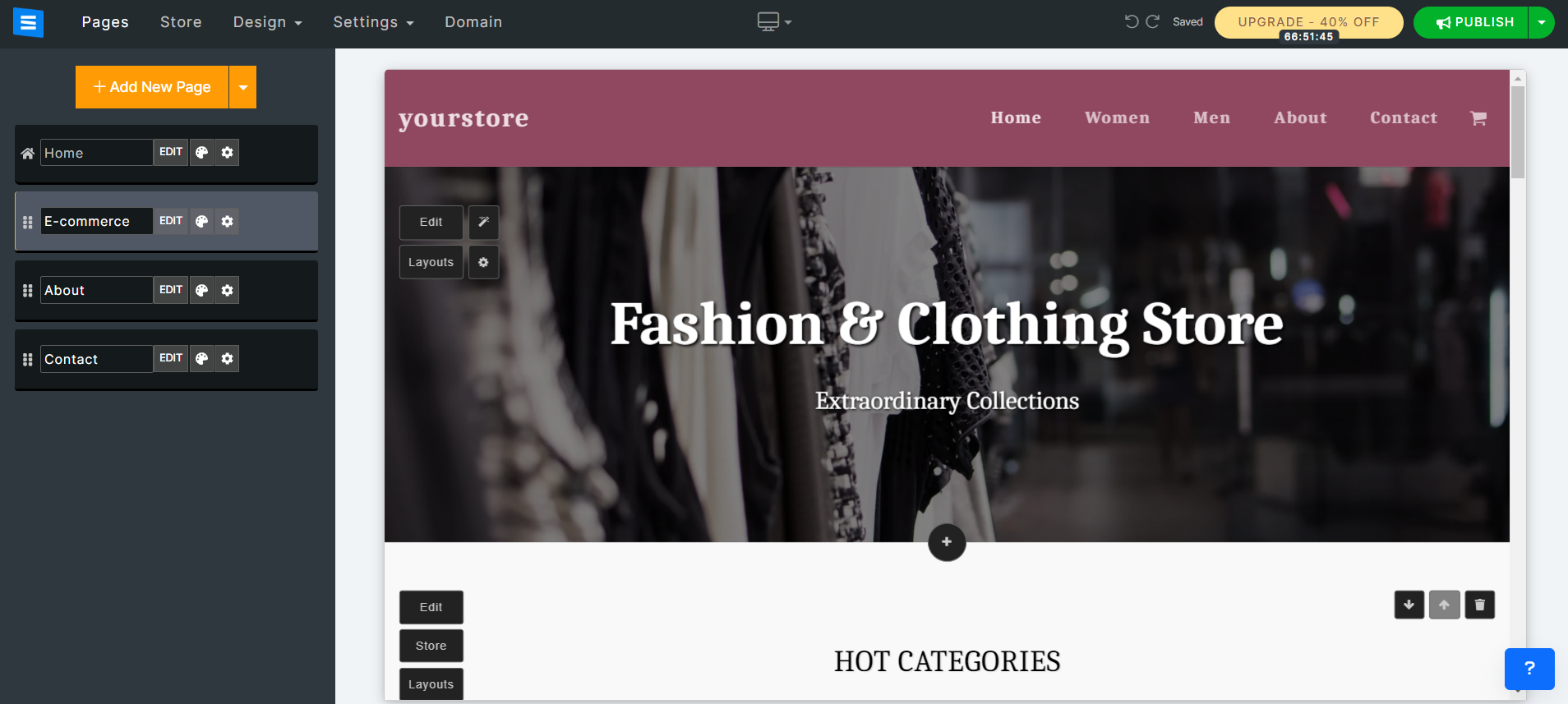
Mobile editor/app
 8.0
8.0
 5.5
5.5
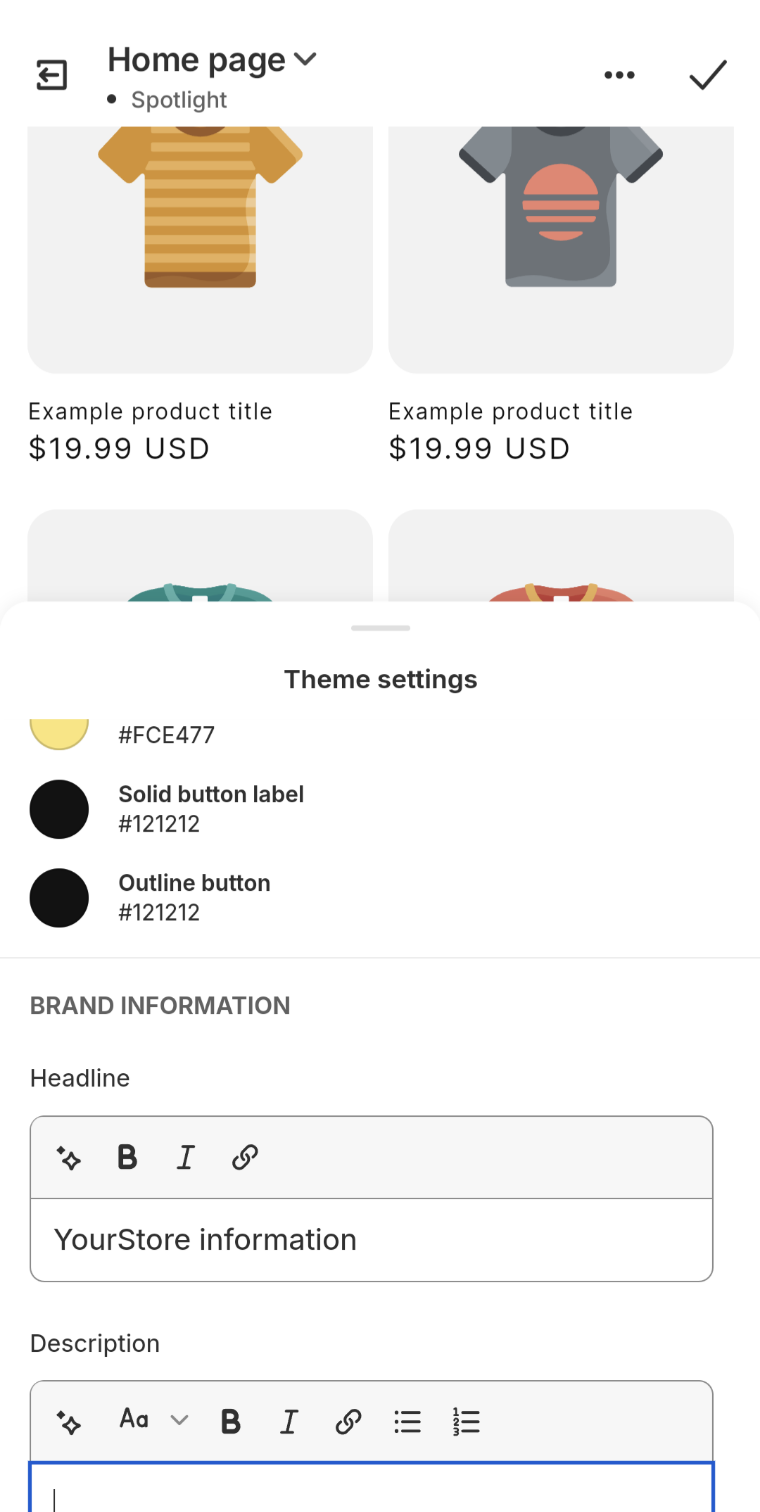
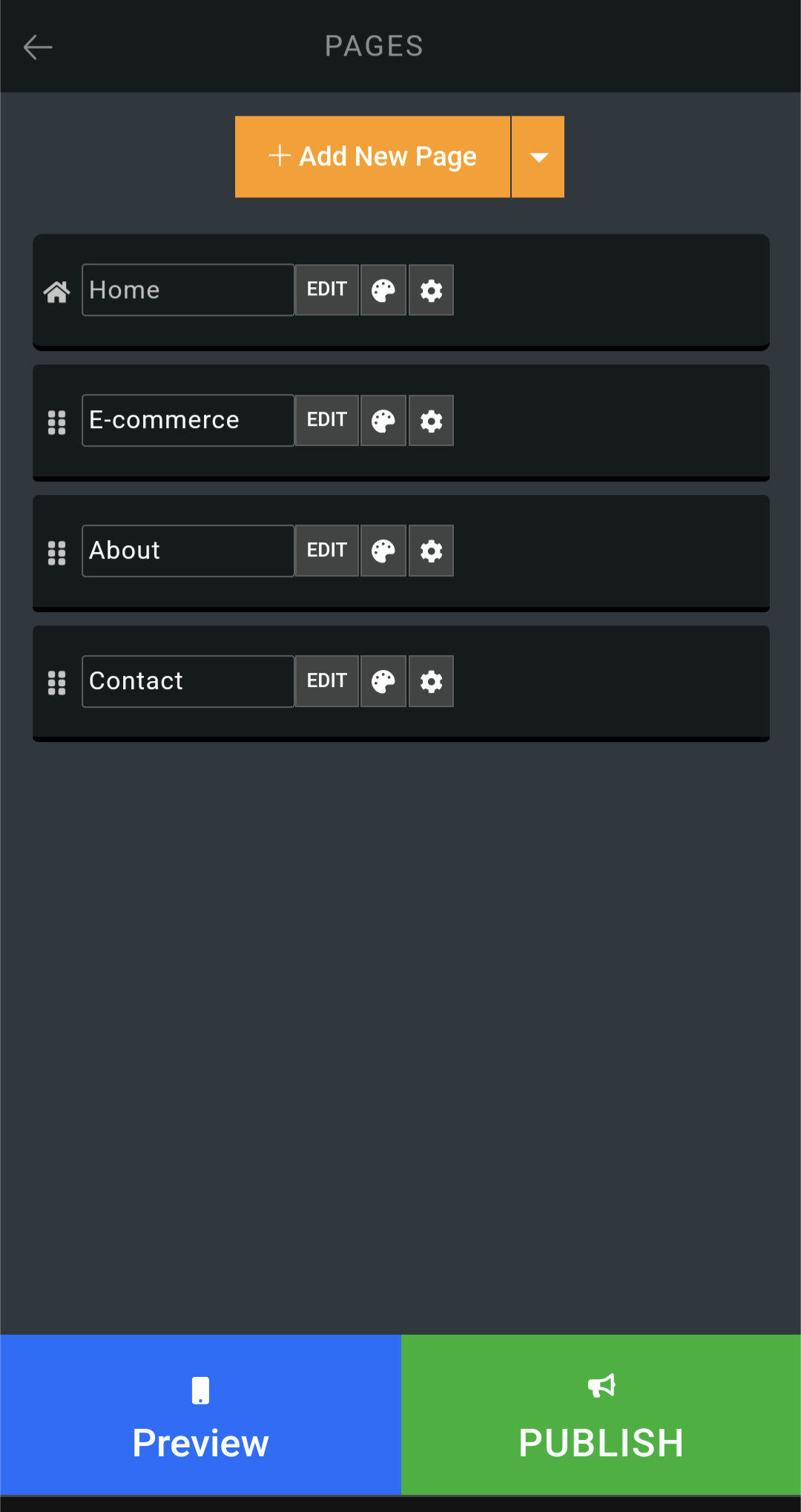
🏆
Winner: Shopify
. Both Shopify and SITE123 offer mobile editing capabilities, but they cater to different needs and skill levels. Shopify provides a mobile app that includes a user-friendly mobile theme editor. This feature allows users to customize their online store website directly from their mobile device, enabling the addition, removal, editing, and rearrangement of content on the store’s website. This offers convenient on-the-go adjustments to the store’s appearance and layout.
On the other hand, SITE123 does not have a mobile app for website editing. However, users can edit a SITE123 website on a mobile browser. This might not provide the same level of convenience and functionality as a dedicated mobile app.
In summary, Shopify receives a higher rating due to its dedicated mobile app and the convenience it offers for on-the-go website editing, while SITE123’s mobile editing capabilities are limited to editing on a mobile browser.
Product testing options
Product Testing OptionsAssesses the options for trying out platform features before commitment.Score Components:
- Trial quality (40%): Extent and usefulness of the trial or free version.
- Feature accessibility (30%): How many features are available to test.
- Trial duration (20%): Length of the trial period.
- Ease of transition (10%): Smoothness of moving from trial to paid plans.
 8.1
8.1
 6.4
6.4
Overall Result
:
Shopify wins
. Shopify scores 8.1, offering a 14-day free trial with access to all features, while SITE123 scores 6.4, offering a refundable period for testing premium features.

|

|
|
|---|---|---|
|
Free Plan |
No (14-day free trial) | Yes |
|
Trial Duration |
14 days | No, however Site123 offers 14 day money back guarantee |
|
Testing Premium Features |
All features during free trial |
It is possible to test the premuim features during the 14 day refundable period. |
Price
PriceLooks at the cost-effectiveness and value for money of each platform.Score Components:
- Plan value (40%): What each pricing tier offers.
- Transparency and clarity (30%): Clearness of pricing structures.
- Flexibility of plans (20%): Range of options to suit different budgets.
- Hidden costs (10%): Additional expenses not included in the plan.
 8.2
8.2
 6.2
6.2
Shopify offers more value for money with a higher price score and more features, especially for ecommerce.
Shopify’s plans are more expensive but offer more features, and there is a discount for annual subscriptions. Shopify also has enterprise plans for high-growth businesses and large enterprises. On the other hand, SITE123’s plans are cheaper but offer fewer features, and there is no discount for annual subscriptions. SITE123 does not offer an enterprise plan.

|

|
|
|---|---|---|
|
Free |
No offering at this amount. |
Free ($0/month): 250 MB storage, 250MB bandwidth, SITE123 branding, basic SEO for homepage. This plan allows to manage 1 website and there is no limitation on number of pages. It offers hosting with 250MB storage and bandwidth. However, it does not offer ecommerce features, has limited templates and does not have AI website builder. |
|
$0-$10 |
No offering at this amount. |
Premium ($7.8/month): 3 GB storage, 3 GB bandwidth, connect your domain, remove SITE123 floating tag. This plan allows to manage 1 website and there is no limitation on number of pages. It offers hosting with 3GB storage and bandwidth. However, it does not offer ecommerce features, has limited templates and does not have AI website builder. Value for price: 6.5 |
|
$20-$30 |
Shopify Basic ($29/month): Unlimited products, 2.9% + 30¢ card fee with Shopify payments, Extra 2% gateway fee without Shopify Payments, Abandoned cart recovery, Automated sales tax, Digital products, POS Integration, 2 staff accounts. Value for price: 8.0 |
No offering at this amount. |
|
$70-$80 |
Shopify Standard ($79/month): Lower card fees (2.6% + 30¢), Gift cards, Professional reports, 5 staff accounts. Value for price: 8.5 |
No offering at this amount. |
|
$200+ |
Advanced Shopify ($299/month): Lowest card fees (2.49% + 30¢), Advanced report builder, Real-time carrier shipping, Up to 15 staff accounts Value for price: 8.8 |
No offering at this amount. |
location. As a result in rare cases the prices displayed here can differ from the ones you see on their
websites.
Hosting quality
Hosting
qualityExamines the reliability and performance of the hosting solutions.Score Components:
- Uptime (40%): Consistency and reliability of website availability.
- Speed (30%): Loading times and performance.
- Bandwidth and storage (20%): Sufficiency of resources provided.
- Data centers (10%): Quality and distribution of hosting infrastructure.
 9.0
9.0
 7.0
7.0
Winner: Shopify
. Shopify’s proprietary cloud-based hosting, with a 99.99% uptime guarantee and global data centers, is designed to support high-traffic online stores. SITE123, offering managed hosting with a 99.9% uptime guarantee, is less transparent about its data centers and provides lower storage and bandwidth limits. This gives Shopify a higher hosting quality score.

|

|
|
|---|---|---|
|
Do they offer hosting? |
Yes, included in all paid plans |
Yes, included in all paid plans, free plan with limited features |
|
Data Centers: |
5 globally: USA (Ashburn, Virginia; Santa Clara, California), Canada (Toronto, Ontario), Ireland (Dublin), and Singapore |
SITE123 does not disclose any information related to their data centers |
|
Type of hosting: |
Proprietary cloud-based hosting |
Managed Hosting |
|
Uptime: |
99.99% |
99.9% |
|
Uptime Guarantee: |
Yes, 99.99% |
Yes, 99.9% |
Website Speed Optimization
Website Speed OptimizationEvaluates optimization of website loading timesScore Components:
- PageSpeed Score (30%): Google’s score indicating performance optimization.
- Loading Time (30%): The average time until a website is fully interactive.
- Mobile Optimization (15%): Optimization effectiveness for mobile devices.
- Resource Optimization (15%): Optimizing images, scripts, and other heavy resources.
- CDN Usage (10%): Use of CDN to enhance speed across geolocations.
 7.8
7.8
 5.8
5.8
🏆 Winner: Shopify
Both Shopify and SITE123 place a high priority on website performance and page speed, with Shopify focusing on app and theme optimization and SITE123 using a variety of strategies including CDN, image optimization, caching, minification of CSS, JavaScript, and HTML, use of asynchronous loading, and database optimization. However, Shopify has a higher website speed optimization score than SITE123, indicating that its strategies may be more effective.

|

|
|
|---|---|---|
|
Focus |
App optimization, Theme optimization |
CDN, Image Optimization, Caching, Minification of CSS, JavaScript, and HTML, Use of Asynchronous Loading, Database Optimization |
|
Performance Tools |
Google Lighthouse, PageSpeed Insights |
Not disclosed |
|
Key Strategies |
App efficiency, Theme optimization |
CDN, Image Optimization, Caching, Minification of CSS, JavaScript, and HTML, Use of Asynchronous Loading, Database Optimization |
|
Load Times |
Varies widely, dependent on optimization |
Varies widely, depending on the optimization and user’s location |
|
Page Speed Scores Range |
Scores vary; influenced by apps, images |
Varies widely, depending on the optimization and user’s location |
|
Core Web Vitals Improvement |
Emphasis on LCP, FID, CLS improvements |
Not disclosed |
Shopify’s approach to enhancing site speed includes app optimization by removing unneeded app code, conditionally loading apps, avoiding immediate pop-up displays, and incorporating app functionality directly into themes. This approach leverages Shopify’s fast servers and CDN network to boost load speed. Shopify also suggests utilizing Google AMP for faster mobile page loads, although with some design compromises. Analysis of three Shopify sites showed a range of Shopify speed scores from 14 to 75, Google PSI scores from 8 to 80, and load times varying from 10.6 seconds to 2.3 seconds. Continuous maintenance and optimization are essential for keeping Shopify stores fast.
SITE123 uses a variety of strategies for website speed optimization, including CDN, image optimization, caching, minification of CSS, JavaScript, and HTML, use of asynchronous loading, and database optimization. However, both load times and PageSpeed scores vary widely, depending on the optimization and user’s location. SITE123 does not disclose any information about Core Web Vitals improvements.
Get a head start on website creation with AI
Create a custom website tailored to your business needs 10X faster with 10Web AI Website Builder!
Plugins and integrations
Plugins and integrationsMeasures the range and effectiveness of additional plugins and integrations.Score Components:
- Variety of options (40%): Range of available add-ons.
- Integration smoothness (30%): Ease of integrating plugins into the site.
- Quality of plugins (20%): Functionality and reliability of the options.
- Custom integration capabilities (10%): Support for custom or third-party integrations.
 8.7
8.7
 7.1
7.1
🏆 Winner: Shopify.
With a score of 8.7, Shopify outperforms SITE123, which scores 7.1. Shopify offers over 8,000 apps in its App Store, covering a wide range of functionalities. These apps come with various pricing options, including free, paid, freemium, and one-time payment models.
On the other hand, SITE123 offers over 250 apps, which is significantly less than Shopify. However, SITE123 does offer a robust integration with over 6,000 apps through Zapier, offering unparalleled flexibility in connecting your website to a vast ecosystem of applications to improve functionality and streamline operations.
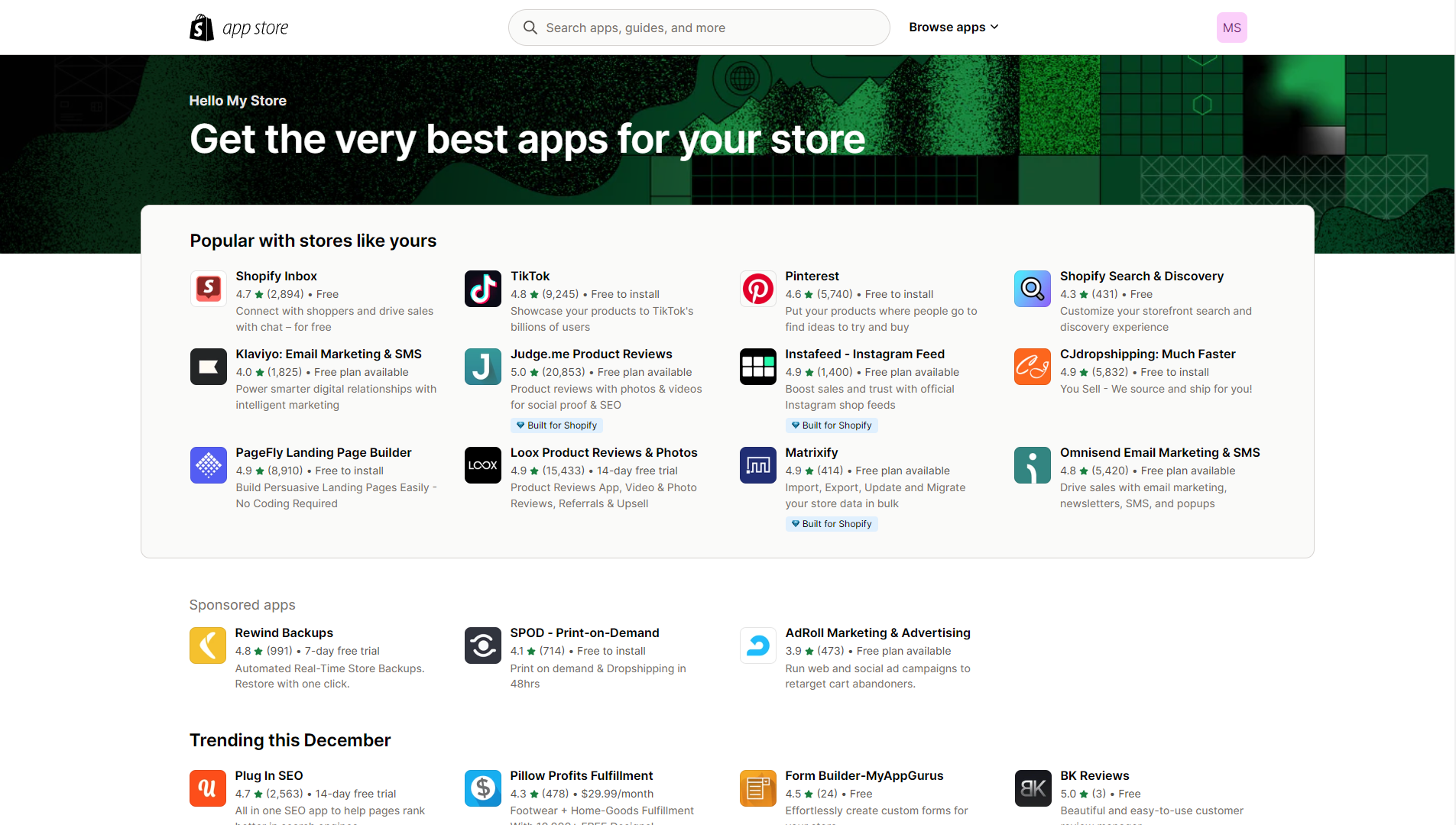
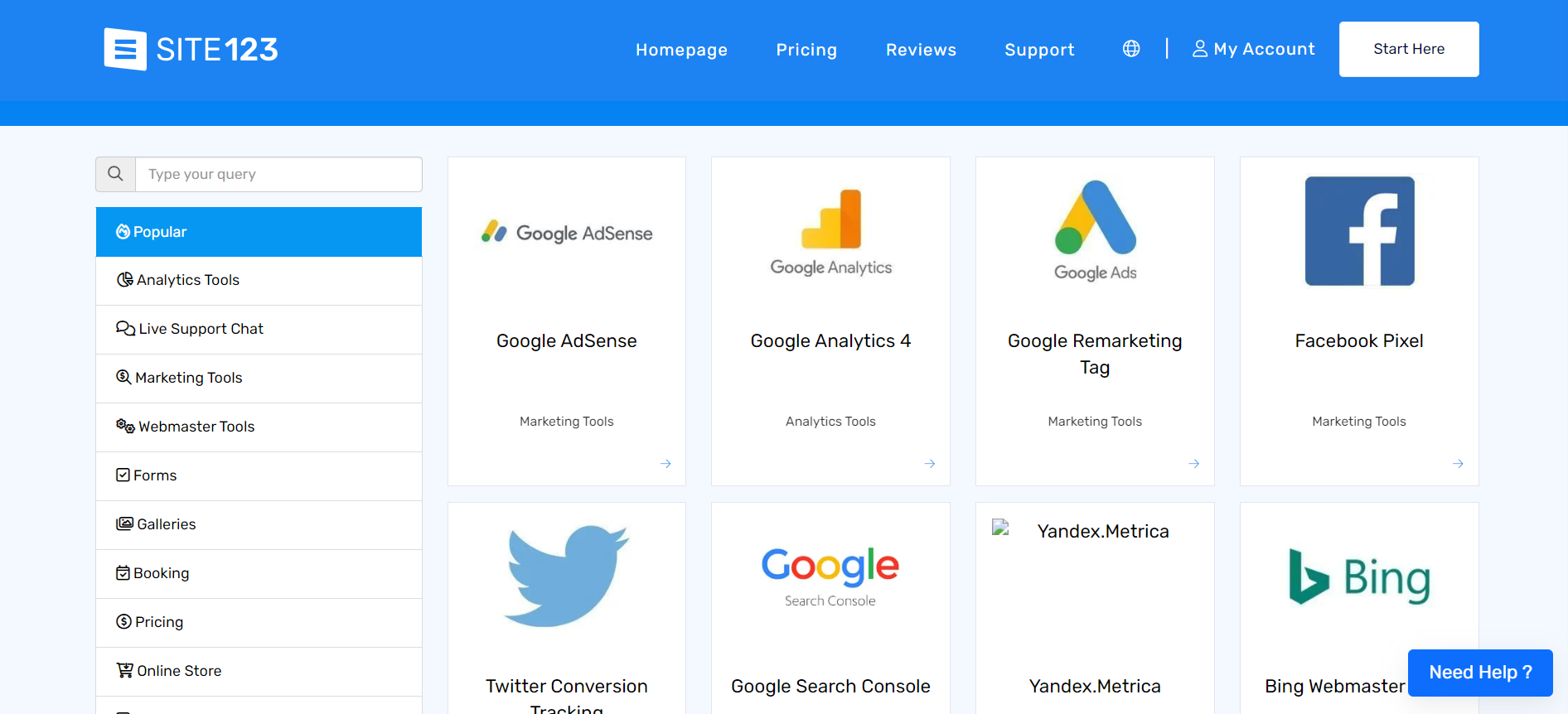
Marketing Features
Marketing featuresAssesses tools and options available for marketing.Score Components:
- SEO tools (40%): Effectiveness of SEO features.
- Marketing automation (30%): Availability and quality of marketing tools.
- Social Media integration (20%): Ease and depth of social media connectivity.
- Email marketing (10%): Quality and usability of email marketing tools.
 8.8
8.8
 6.0
6.0
🏆
Overall Winner: Shopify
. Shopify stands out for its more advanced ecommerce-focused marketing tools, especially in analytics and ad campaign management. SITE123 offers basic marketing tools and often requires third-party integrations for enhancement.

|

|
|
|---|---|---|
|
SEO Tools |
|
|
|
Email Marketing |
|
|
|
Blogging |
|
|
|
Social Media Integration |
Advanced integration for selling directly on social platforms |
Basic linking with accounts, enhanced through app integrations |
|
Analytics and Reporting |
Detailed analytics for in-depth insights |
Basic analytics provided, with more detailed insights on higher plans |
|
Ads and Promotions |
Google Ads integration; sophisticated ad campaign management |
Limited direct marketing tools, with some promotional features available on premium plans |
Customer Support
Customer supportEvaluates the quality and availability of support options.Score Components:
- Response time (40%): Speed of support responses.
- Support quality (30%): Effectiveness and helpfulness of the support.
- Availability (20%): Range of support channels (phone, chat, email).
- Resource richness (10%): Quality of self-help and educational materials.
 8.6
8.6
 7.3
7.3
🏆 Winner: Shopify
. Shopify outperforms SITE123 in this category with a score of 8.6 against 7.3. Shopify provides 24/7 support through chat, email, and phone, along with clear tutorials and an extensive community for additional help. They also offer a dedicated program and additional resources for enterprise-level businesses, which includes a dedicated account manager, 24/7 priority support, proactive account reviews, customization and development support, and strategic partnerships.
On the other hand, SITE123 offers 24/7 support in English through their online chat and provides support in 16 more languages during normal business hours. However, they do not provide enterprise support, which is a significant disadvantage for larger businesses.
Security
SecurityLooks at the platforms’ security measures and data protection.Score Components:
- Data protection (40%): Safeguards for user and customer data.
- SSL and encryption (30%): Implementation of secure connections.
- Compliance (20%): Adherence to industry security standards.
- Regular updates (10%): Frequency of security updates and patches.
 9.0
9.0
 7.5
7.5
🏆
Winner: Shopify
. Shopify’s security measures are more comprehensive, including secure infrastructure, encryption, limited access, data minimization, user control and transparency, two-factor authentication, regular audits, and a dedicated incident response team. Shopify also provides SSL certificates for data encryption and website identity verification, and a built-in Web Application Firewall for threat filtering and blocking.
SITE123 also prioritizes website security and data privacy, offering SSL/HTTPS encryption, modern firewalls, and free domain privacy protection. However, its security measures are not as extensive as Shopify’s, resulting in a lower security score.
AI Capabilities
AI capabilitiesMeasures the effectiveness of AI-driven features and tools.Score Components:
- Automation efficiency (40%): Impact of AI on streamlining processes.
- Personalization (30%): AI-driven customization for users or customers.
- AI-Assisted design (20%): Role of AI in website design and functionality.
- Data analysis (10%): Use of AI in interpreting user data and analytics.
 7.9
7.9
 2.8
2.8

|

|
|
|---|---|---|
|
Personalized Design |
Shopify AI Builder offers personalized design suggestions |
|
|
SEO Optimization |
AI-driven recommendations for better search engine visibility |
|
|
Customer Behavior Analysis |
Advanced analytics to understand customer preferences |
|
|
Sales Predictions |
AI-powered sales forecasting tools |
|
|
Inventory Management |
AI tools to assist in efficient inventory handling |
|
|
Content Generation |
AI assistance in creating engaging content |
AI-powered content generation for various website sections |
🏆 Winner: Shopify
. Shopify’s AI capabilities are extensive and innovative, offering a wide range of features to enhance the ecommerce experience. These include personalized design suggestions, SEO optimization, customer behavior analysis, sales predictions, and inventory management. Shopify’s AI also assists in content generation, making it a powerful tool for online store owners.
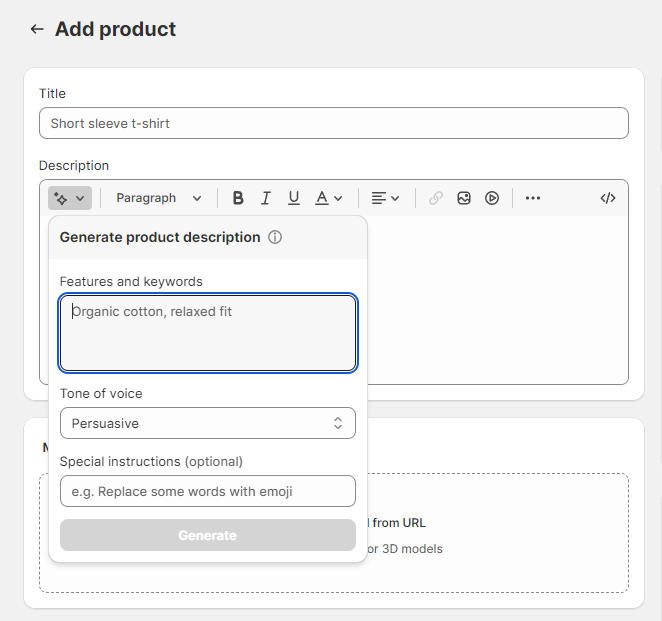
SITE123, with a score of 2.8, has limited AI capabilities. Its main feature is AI-powered content generation, which simplifies the process of creating website content. However, compared to Shopify, SITE123 lacks in other AI features, making it less versatile.
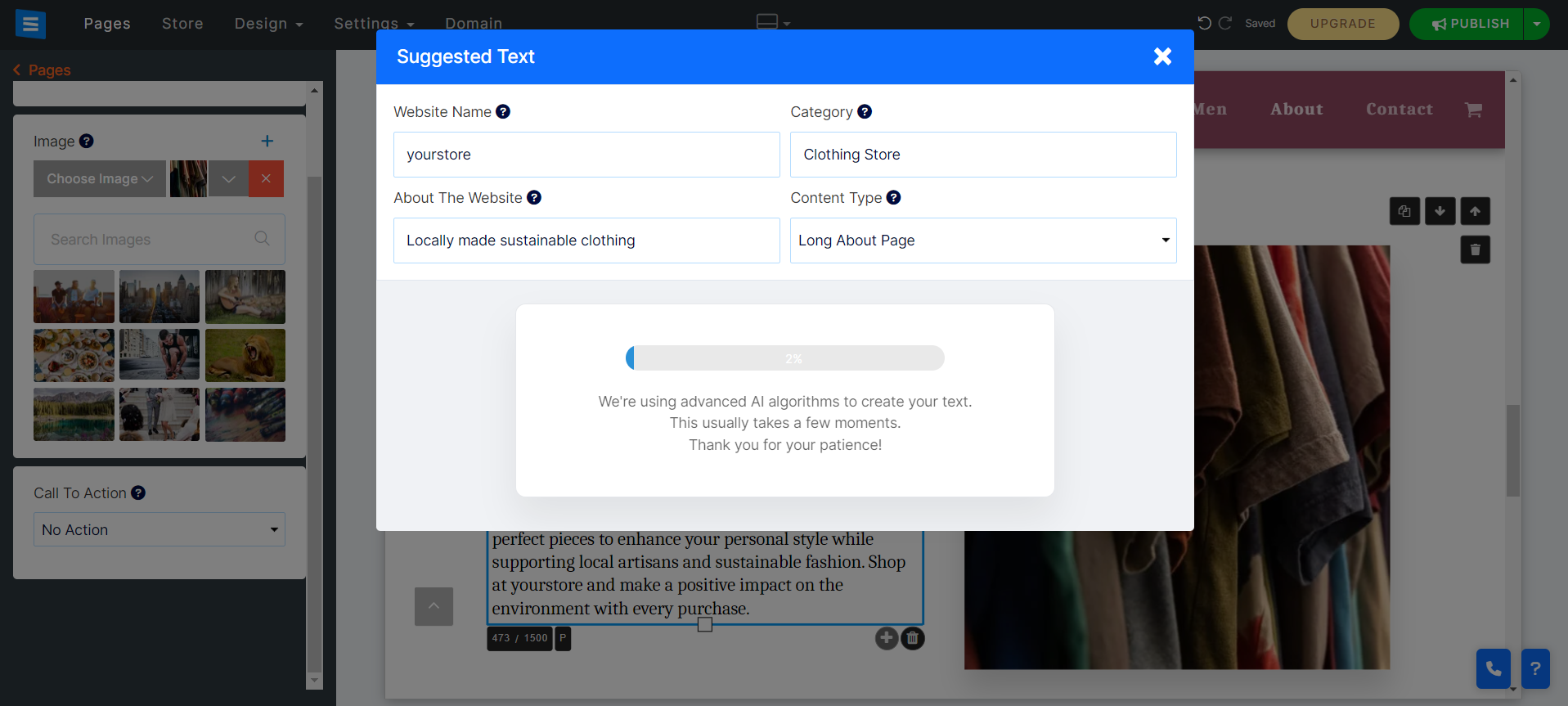
User Management
User ManagementAssesses the platforms’ capabilities in managing user roles, permissions, and accessibility.Score Components:
- Role Customization (40%): Flexibility in creating and defining user roles and
permissions. - Ease of Management (30%): User interface and tools for managing users.
- Access Control (20%): Effectiveness of access control measures for different user
levels. - Scalability (10%): Ability to manage a growing number of users efficiently.
 6.5
6.5
 6.3
6.3
🏆 Winner: Shopify
. Managing your online team with Shopify and SITE123 involves different approaches to website editing access.
-
Shopify enforces staff account limits based on plans, ranging from 2 to 15, with Shopify Plus offering unlimited
accounts. Collaborators with limited access are also an option. - SITE123 allows multiple users to have two different roles: Admin and Contributor, each with its own set of permissions. However, there is no mention of limitations on the number of users who can edit the website on SITE123.
Shopify User Roles and Access Levels:
| Role | Description | Access Highlights |
|---|---|---|
| Store Owner | Full control over store | Manage products, orders, discounts, payments, apps, settings. Create and manage staff accounts. |
| Staff | Configurable access by owner |
Add/edit products, manage orders, fulfill orders, manage customers, update content. Access level can be customized by the owner. |
| Collaborator | Limited access for external partners | View and manage specific sections like blog or product categories. Cannot access full store settings. |
Additional Features

|

|
|
|---|---|---|
|
SSL Certificate |
|
|
|
Custom Domain |
|
|
|
Free Custom Domain Included |
|
|
|
International Domains |
|
|
|
Mobile Responsive |
|
|
|
Page Speed |
|
|
|
Website Builder Mobile App |
|
|
|
Convert a Website To An App |
|
|
|
Website Analytics |
|
|
|
Multilingual Sites |
|
|
|
Multiple Users |
|
|
User Feedback
Shopify’s slightly higher rating on G2 Crowd can be largely attributed to its specialization in ecommerce. Its comprehensive features, ease of use, and robust customer support cater specifically to online businesses, leading to high user satisfaction among those seeking a dedicated ecommerce solution.
SITE123, on the other hand, offers a user-friendly platform with drag-and-drop features, making website building quick and easy. Users appreciate its wide library of free images and templates, mobile responsiveness, and excellent customer support. However, some users find its customization options limited, especially in the free version, and wish for more robust features like additional plugins and payment methods tailored to different regions. Overall, SITE123 appears beneficial for those seeking to create professional-looking websites without extensive coding knowledge, though it may lack certain advanced functionalities for more specialized needs.
The making of this blog
We followed a clear, step-by-step process to write and research this article.
FAQ
Which platform is better for ecommerce, Shopify or SITE123?
Can I create a professional website without coding skills on both Shopify and SITE123?
How do Shopify and SITE123 compare in terms of design and customization?
Which platform offers better support and learning resources?
Are there any significant differences in pricing between Shopify and SITE123?
How do the platforms compare in terms of website speed and hosting quality?
Which platform has better marketing tools and integrations?
What are the main differences in security measures between Shopify and SITE123?










